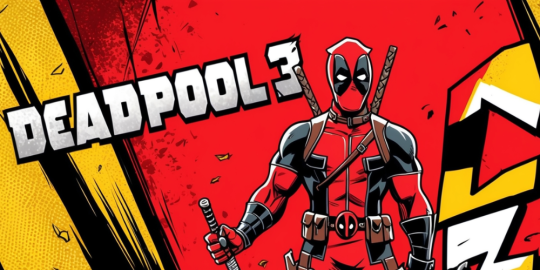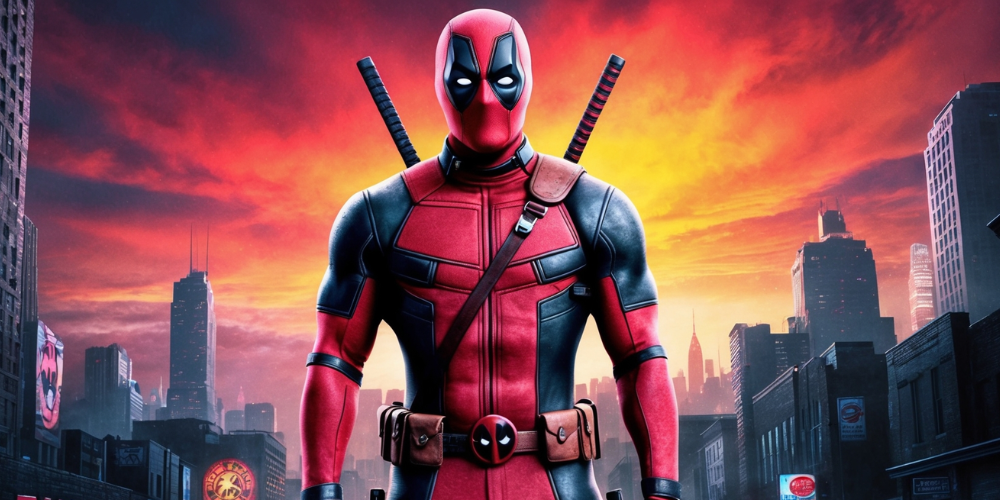
The theme of identity is prevalent across various forms of storytelling, including comic books. Characters often grapple with who they are, what they represent, and how they fit within their world. This element is particularly pronounced in the superhero genre. Deadpool, known for his irreverent humor and unconventional narrative style, provides a unique lens through which to explore the complexities of identity.
Deadpool as an Antihero
Deadpool, or Wade Wilson, breaks the mold of the traditional superhero. His identity as an antihero challenges the archetype of justice and morality typically associated with heroes. His methods, motivations, and approaches to conflict often include a self-serving agenda but are also layered with moments of deeper introspection. This duality invites audiences to reflect upon what it means to be a hero and how personal identity shapes these roles.
Multiplicity of Identity
In Deadpool 3, the character continues to navigate multiple layers of identity. The concept of multiplicity suggests that a single person can embody various identities based on circumstances, relationships, and choices. Deadpool's interactions with other characters often bring his multifaceted identity to the forefront, highlighting the complexity of self in an ever-changing environment.
Breaking the Fourth Wall: A Reflection on Identity
One of Deadpool's hallmark traits is his tendency to break the fourth wall, engaging with the audience directly. This unconventional narrative device allows for introspection and self-awareness, enabling viewers to witness Deadpool's struggles with his identity. By acknowledging his existence as a fictional character, Deadpool invites contemplation about the blurred boundaries between creator and creation.

The Impact of Trauma on Identity
Trauma plays a significant role in shaping Deadpool's identity. His experiences, including physical and emotional scars, contribute to his worldview and how he perceives himself. The film delves into how past traumas can fracture identity and lead to a constant battle for self-acceptance. This theme resonates deeply with audiences who can relate to the struggles that come with reconciling past experiences and present selves.
Friendship as a Mirror of Identity
The dynamics of friendship found in Deadpool 3 greatly contribute to the exploration of identity. Connections with others significantly influence people's self-perception. In the film, Deadpool's interactions with characters like Colossus and Negasonic Teenage Warhead challenge him to confront his own identity and the masks he wears. Through these friendships, the narrative emphasizes that identity is often shaped in relation to others.
Romantic Identity in Deadpool 3
Romance introduces another significant aspect of identity exploration. Deadpool’s relationship with Vanessa showcases the interplay between love and self-concept. The evolution of their relationship allows for moments of vulnerability and growth, revealing how romantic connections can influence one’s identity. This romantic subplot highlights the importance of acceptance and how love can serve as a catalyst for personal transformation.
The Role of Humor in Identity Formation
Humor is a defining characteristic of Deadpool, serving as both a coping mechanism and a tool for identity expression. The comedic elements provide a buffer for deeper emotional truths, allowing audiences to engage with serious themes while still enjoying the narrative. Deadpool often uses humor to navigate uncomfortable situations, reflecting how individuals may adopt certain personas to mask their true selves.

Cultural Identity and Representation
Deadpool 3 also delves into themes of cultural identity. The inclusion of diverse characters and backgrounds enriches the storytelling. Each character’s identity offers unique perspectives and experiences, showcasing how cultural heritage influences personal identity. This aspect highlights the importance of representation in media and how it contributes to broader discussions about identity and belonging.
Existential Questions and Identity Crisis
Throughout Deadpool 3, existential themes resonate strongly. As Deadpool faces various adversities, he often grapples with fundamental questions about existence and purpose. These moments of crisis force him to reevaluate his identity, confronting the disconnect between who he is and who he wants to be. This internal struggle drives the narrative forward and invites audiences to engage with their own existential inquiries.
Identity and the Superhero Genre
The film serves as a meta-commentary on the superhero genre itself. By subverting expectations and embracing tropes, Deadpool explores the traditional notions of heroism and villainy. This genre-fluid approach amplifies the discussion around identity, showcasing how characters within this framework often redefine themselves against societal norms and expectations.
Parenthood and Identity Transformation
In Deadpool 3, the theme of parenthood introduces a profound transformation in identity. As Deadpool navigates responsibilities as a father, his understanding of self evolves. This aspect of the story highlights the complexities of familial roles and the impact of parenthood on personal identity. The juxtaposition of his antihero persona with parental instincts provides a new layer to his character arc.

The Effect of Public Perception on Identity
The influence of public perception plays a critical role in shaping identity throughout the film. As a character often vilified and misunderstood, Deadpool faces challenges that reflect the complexities of societal attitudes. This dynamic raises questions about authenticity and the extent to which external judgment impacts one’s self-image and identity development.
Memory and Identity Reclamation
Memory serves as a vital component in the exploration of identity, especially as Deadpool confronts aspects of his past. The film illustrates how memories influence one's sense of self and the ongoing journey of identity reclamation. As he interacts with figures from his past, Deadpool is prompted to reconcile with previous versions of himself, ultimately seeking a cohesive understanding of his identity.
The Inability to Fully Escape Identity
Deadpool's attempts to forge a new identity illustrate the struggle of escaping one's past. Despite his humorous exterior, he cannot fully distance himself from the traits and experiences that define him. This theme resonates with a universal audience, emphasizing that identity is often intertwined with personal history, making complete reinvention nearly impossible.
Conclusion: A Unique Journey of Self-Discovery
As Deadpool 3 unfolds, it presents a multifaceted exploration of identity through humor, relationships, and introspection. The movie encourages viewers to contemplate their personal identities, presenting a reflective experience that echoes common motifs of change, embrace, and the continuous quest for genuine self-expression. Through the lens of Deadpool’s unconventional journey, viewers are reminded that the quest for self-discovery is as diverse and dynamic as the characters themselves.